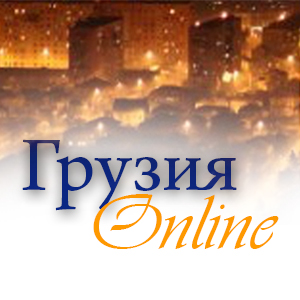
The Council of Europe published a report on the situation around the occupied territories of Georgia
The document says that during the reporting period, the Georgian authorities continued to express concern about the ongoing so-called. “borderization” on the dividing line and illegal detentions. In this context, the report states that the humanitarian and human rights situation on the ground is being affected by restrictions on free movement, documentary problems and delays in accessing basic services.
According to the document, no progress has been made in the investigation into the deaths of Giga Otkhozoria, Archil Tatunashvili, David Basharuli, Irakli Kvaratskhelia and Inal Dzhabiev. There is also no progress in terms of the return of internally displaced persons to the occupied regions.
It is also noted that humanitarian activities in Abkhazia were carried out by the Office of the United Nations High Commissioner for Refugees, the United Nations Development Programme, the World Health Organization and the International Committee of the Red Cross, including through the provision of financial assistance and food.
The situation in Abkhazia
According to the document, during the reporting period, the process of “borderization” continued along the dividing line of Abkhazia, including “the erection of fences, the installation of new surveillance equipment and the strengthening of surveillance around checkpoints.”
The report states that five people were detained between March and September 2022. In this context, the report focuses on the state of health of Irakli Bebua, as well as the illegal detention of Kristina Takalandze in July 2022 on charges of espionage.
According to the document, the need for a “residence permit” for residents of Gali continues to affect the freedom of movement of people trying to cross into Tbilisi-controlled territory.
In terms of education, the report says that in the schools of the Gali district, one hour a week is devoted to Georgian language and literature, while the rest of the subjects are mostly taught in Russian. The document also states that teaching in Georgian is prohibited both in schools and kindergartens in the district.
According to the report, meetings of the Gali Incident Prevention and Response Mechanism were suspended during the reporting period.
The document focuses on the dual citizenship agreement signed by Russia and occupied Abkhazia in September, which allows Abkhazians to obtain Russian citizenship without giving up their Abkhazian passport.
The situation in the Tskhinvali region / South Ossetia
The report notes that Tbilisi has expressed concern about the ongoing “borderization”. With reference to the data of the Georgian government, it is said that in January-September 2022, 51 such actions were recorded, including the installation of roadblocks, fences and border signs.
Also, based on data from the Georgian government, the document states that the Russian occupation forces arbitrarily detained 29 Georgian citizens.
According to the document, the situation in the Chorchana-Tsnelisi region has not yet been resolved, which contributes to tension.
The document emphasizes that in terms of the humanitarian situation in the region, especially in the Akhalgori region, where a “difficult socio-economic situation” has developed, there is no “positive trend” observed. The closure of checkpoints will negatively affect the supply of goods and food in the Tskhinvali region, as well as the access of residents to medical facilities in Tbilisi-controlled territory.
The report also says that during three meetings of the Incident Prevention and Response Mechanism in the village of Ergneti, co-facilitators welcomed the release of detainees and called for a humanitarian approach to current and future cases of detention. They also welcomed the temporary opening of crossing points during the Lomisoba holiday and the regular opening of crossing points at the end of August.
The Council of Europe document also mentions an arrest warrant issued by the Prosecutor of the International Criminal Court on 10 March 2022 for three former high-ranking officials of the South Ossetian de facto authorities.
Average Rating